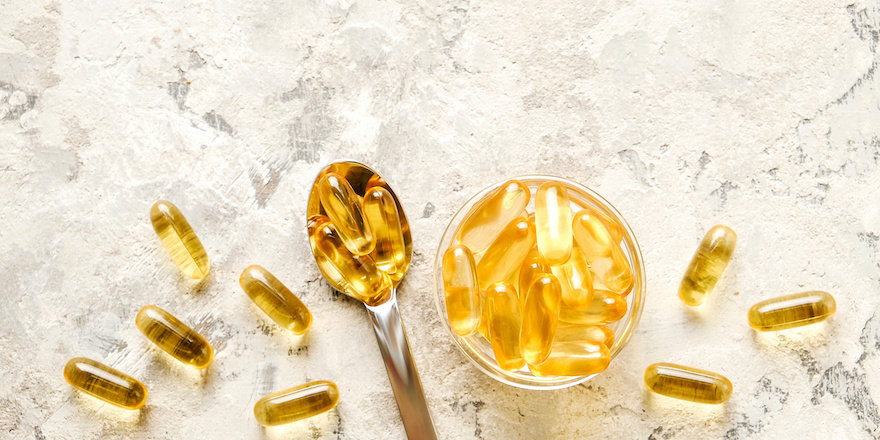Omega-3s, polyunsaturated fatty acids, play a central role in the body’s functioning. These lipids, or fats, are considered essential because they cannot be synthesized by the body.
There are three main forms : eicosapentaenoic acid (EPA) and docosahexaenoic acid (DHA) from animal sources, and alpha-linolenic acid (ALA) of plant origin.
For a sufficient intake, ANSES estimates that it is necessary to consume 2 to 3 g per day, including 250 mg of DHA, 250 mg of EPA and the rest as ALA.
These doses help promote good heart health, the maintenance of normal vision, and the proper neural development of the fetus.
But beyond the benefits of omega-3s, can their daily intake pose a danger ? What about poor-quality capsules or an overdose?
Omega-3 overdose: a danger to the blood?
No risk according to the EFSA’s conclusions
The issue of excessive omega-3 consumption has been widely debated at the European level. However, after numerous scientific studies, the EFSA was unable to establish a maximum tolerable threshold beyond which intake can be classified as an overdose.
It was even concluded that consumption of EPA and DHA equivalent to 5 g per day does not pose a health risk to healthy people. Knowing that daily omega-3 quotas are rarely met, we can relax!
Blood thinning but not bleeding
There is particular concern that people consuming too much omega-3 may experience bleeding.
However, research shows that these fatty acids act on blood fluidity but do not cause an increased risk of bleeding or hemorrhage, as indicated by this study.
Poor-quality supplements and the presence of heavy metals
Poor-quality omega-3s with unreliable testing may contain significant levels of heavy metals that are harmful to the human body.
On this subject, this study conducted in southwest China shows how careful we need to be about the heavy metals present in what we consume.

What are the common side effects of omega-3s?
As with any dietary supplement, you may experience at the start of your regimen stomach aches, some nausea as well as diarrhea.
These effects should be temporary. If not, I strongly advise you to stop taking it and consult a healthcare professional.
What are the contraindications to taking omega-3s?
Since omega-3 capsules are mostly made from fish oil, they are contraindicated for people allergic to fish and shellfish to avoid any reaction.
I also recommend asking your primary care physician or pharmacist for advice if you are pregnant or if you are taking medication (particularly anticoagulants), to avoid any interaction.
My advice for safe consumption
In the majority of cases, taking good-quality omega-3 supplements at an appropriate dose is not dangerous in healthy adults. A diet rich in omega-3 is also recommended.
But to avoid any risk when taking omega-3s, I advise you to pay attention:
- according to your daily dosage, even though the risk of exceeding the limits remains low
- to choose quality supplements, with patented oils like Epax® omega-3s that limit heavy metal presence and that respect eco-responsible fishing principles.
Sources and scientific studies
- Lipids, ANSES
- EFSA assesses safety of long-chain omega-3 fatty acids, 2012
- John K. Wachira, Mark K. Larson, William S. Harris, n-3 Fatty acids affect hemostasis but do not increase the risk of bleeding: clinical observations and mechanistic insights, 2014
- Akintoye E, Sethi P, Harris WS, Thompson PA, Fish Oil and Perioperative Bleeding. Circ Cardiovasc Qual Outcomes, 2018
- Cheng Zhang, Yongmin Wang, Zhengling Zhang, Dingyong Wang, Health Risk Assessment of Heavy Metals and As in Vegetable and Soil System in Chongqing, Southwest of China, 2015



